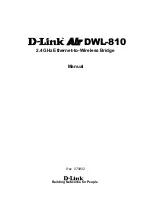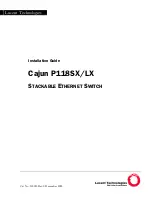
• If you turn off your system, wait at least 30 seconds before turning it on again to avoid damage to the
system components.
Site Planning Checklist
Use the following checklist to perform and account for all the site planning tasks described in this chapter:
• The site meets the environmental requirements.
• The site’s air conditioning system can compensate for the heat dissipation of the router.
• The floor space that the router occupies can support the weight of the system.
• Electrical service to the site complies with the requirements.
• The electrical circuit servicing the router complies with the requirements.
• Consideration has been given to the console port wiring and limitations of the cabling involved, according
to TIA/EIA-232F.
• The router Ethernet cabling distances are within the prescribed limitations.
• The equipment rack in which you plan to install the router complies with prescribed requirements.
• The following factors have been carefully considered when selecting the location of the rack: safety,
ease of maintenance, and proper airflow.
Environmental Requirements
For outside plant installation (cell site cabinet, hut, and so on), you must protect the router against airborne
contaminants, dust, moisture, insects, pests, corrosive gases, polluted air, or other reactive elements. Sealed
equipment chamber with air-conditioning or a heat exchanger is recommended for OSP deployments. The
equipment chamber must comply with the temperature and clearance requirements. Sealed equipment chamber
with air-conditioning or a heat exchanger is recommended for OSP deployments. Examples of such cabinets
include IP66 cabinets with heat exchanger complying with Telcordia GR487. Temperature must be maintained
within –40ºC to 65ºC.
The equipment shall be placed inside an enclosure (that is protected from direct outside weather and
environmental stresses by the enclosure), and where the operating climate, as defined by Class 2 of
GR-3108-CORE, is between:
• –40 to 158°F (–40 to 65°C)
• 5% and 85% RH
For more information on environmental properties and regulatory standards, see the
Cisco Network Convergence
System 540 Large Density Routers Data Sheet
.
Airflow Guidelines
Cool air is circulated through the router by fans that are located along the rear side of the router. The internal
fans maintain acceptable operating temperatures for the internal components by drawing in cool air through
the vents, and circulating the air through the router.
To ensure adequate airflow, we recommended that you always maintain this minimum clearance distance:
Cisco Network Convergence System 540 Large Density Routers Hardware Installation Guide
16
Prepare for Installation
Site Planning Checklist
















































